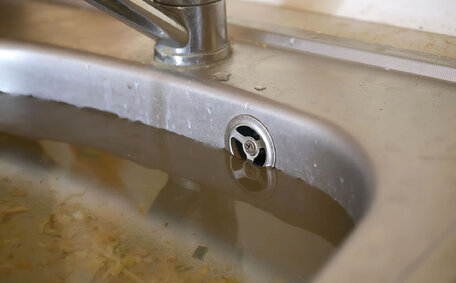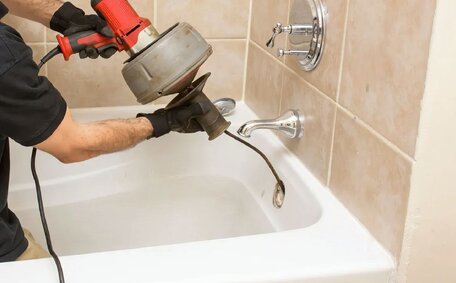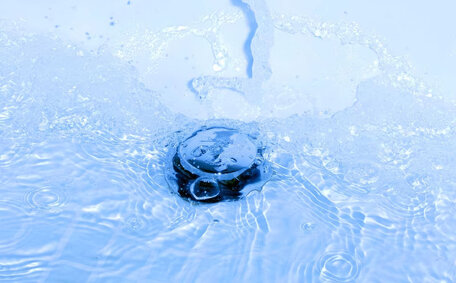Introduction to Direct and Indirect Water Heating
Choosing between a direct or indirect water heating system is a crucial decision for residential and commercial properties alike. Grasping the difference between these two types of heating systems, including tankless water options, is critical in deciding on the perfect option for your specific needs.
As experienced plumbing experts serving the Hornsby, Sydney area for over 15 years, Hornsby Plumbing is here to provide clarity around direct vs. indirect water heaters. Our goal is to eliminate any misconceptions and help you determine the best choice when upgrading or replacing your hot water system.
In this article, we’ll explore the unique pros and cons of both direct and indirect systems. We will examine energy efficiency, initial and ongoing costs, maintenance needs, system longevity, climate and household size suitability, and environmental considerations.
Through analysis of industry data and real-world cases, you’ll gain the knowledge to decide the most suitable water heating system for your home.
How Direct Water Heaters Work
Direct water heaters, synonymous with direct fired heaters, use gas or oil burners to heat water directly. The burners heat the water swiftly, ensuring prompt transfer of heat energy.
These units heat the water directly, without the need for additional heat exchangers or a secondary heating loop. Instead, they feature a tank which holds the cold water supply, ready for heating. The burner fires whenever hot water is needed, heating the tank’s water on demand up to 140°F - 180°F.
Direct heater units can be almost 100% energy efficient as all heat generated gets transferred into the water. However, they can run efficiently only if they have proper ventilation to safely exhaust fumes outdoors. Routinely inspecting the units for gas leaks and blockages is also crucial.
Direct water heaters are both economical and efficient at rapidly heating water, best suited for ventilated spaces that ensure safety from carbon monoxide accumulation.
Benefits of Direct Water Heaters
Direct water heaters offer several key advantages, including:
- Immediate hot water - Since they directly heat water instead of using a secondary loop, you can get hot water without having to wait. It’s available on demand whenever a tap is turned on.
- Cost savings - Direct systems generally incur lower equipment and installation costs due to fewer components and the absence of a heat exchanger.
- Energy efficiency – Transferring nearly 100% of generated heat into the water makes these systems highly energy efficient.
- Compact size - The simple tank-and-burner design takes up less space than bulkier indirect heaters.
- Less maintenance involved - With fewer parts to tend to, maintaining a direct heater is generally undemanding.
Direct water heating systems are cost-effective and require minimal maintenance, ideal for smaller homes with adequate ventilation.
Limitations of Direct Water Heaters
While direct water heaters offer simplicity and cost savings, they do have some limitations to consider:
- Limited capacity – With smaller storage tanks, direct systems might not provide the continuous flow of hot water needed for larger households with multiple bathrooms.
- Safety hazards – The open flame requires careful installation in a well-ventilated area to prevent carbon monoxide poisoning.
- Outdoor installation – Direct heaters often require installation outside due to ventilation needs, potentially leading to increased heat loss.
- Frequent cycling – To maintain temperature, the burner cycles on and off more often than indirect systems.
- Hard water buildup – Mineral deposits from hard water can accumulate faster without a protective liner.
Evaluate your home’s size, climate, and water quality when selecting a direct water heater. For a regular and sizable hot water supply, an indirect heater might be more appropriate. Our experts are on hand to help choose the best fit for your needs.
How Indirect Water Heaters Work
Tankless coil water heaters are also used to utilise heat from an external source, drawing from the home’s boiler furnace, to warm water. This is in contrast to direct heaters that generate their own heat, ensuring their autonomy from the indirect hot water process.
Indirect water heaters involve a storage tank linked to a heating unit via a heat exchanger, which facilitates heat transfer from the boiler to the tank’s water.
Indirect fired heaters draw from an external heat source yet operate independently of the main boiler supply. The closed-loop system is particularly effective during cold weather when boilers are in frequent use.
Indirect heaters also conserve energy as they only ignite your furnace boiler when there’s a demand for the water your household utilises, rather than merely to maintain a tank temperature. Their larger tanks offer storage hot water that remains hot longer than standard heaters.
Benefits of Indirect Water Heaters
The boiler integration of indirect water heaters presents several considerations.
- Higher efficiency – By tapping into an existing heat source like a furnace, The indirect heating unit can utilise energy that would otherwise be wasted.
- Steady hot water supply – Their larger storage tanks deliver more available hot water for larger households with multiple bathrooms.
- Longer lifespan – Indirect heater tanks tend to endure much longer since there’s no burner flame to cause mineral buildup.
- Quieter operation – Without frequent on/off burner cycling, these systems run more quietly.
- Flexible installation – Indirect heaters can be installed in more enclosed spaces since they don’t require ventilation.
Pairing solar hot water heaters with solar thermal systems can further maximise energy savings. Their efficient design makes them an ideal choice for larger homes needing abundant hot water.
Drawbacks of Indirect Water Heaters
While weighing the advantages and limitations of indirect water heaters, it’s clear they maximise efficiency in several aspects but they still present some potential setbacks:
- More expensive initial investment – The inclusion of an additional heat exchanger and a more intricate design results in higher equipment and setup expenses compared to their direct counterparts.
- Reliance on separate heating system – Indirect heaters won’t function without integration with an active boiler, furnace or heat pump.
- Lower efficiency in warmer weather – Since they rely on shared heating systems running regularly, efficiency can drop during warmer months or in hot climates when those systems cycle less often.
- Bigger physical footprint – Due to requiring larger storage tanks and connections to external heating units, indirect heaters take up more space.
- Higher operating costs – Their advantages come from shifting energy use to existing heating systems, which could increase costs to run those systems more frequently.
Carefully consider the benefits and drawbacks to determine if an indirect water heater aligns with the needs of your household. The Hornsby Plumbing team can help provide customised advice on the best system for your needs.
Comparing Installation Costs
When comparing installation costs between direct and indirect water heaters, direct systems generally have lower upfront expenses. With fewer components and no secondary heating system integration required, the equipment, labour and overall setup costs often save money compared to indirect water heaters.
However, direct heater installation may necessitate added infrastructure such as ventilation, gas lines, or electrical upgrades, which could offset the initial cost savings. Always request a detailed quote covering these additional requirements.
Indirect heaters offset higher base installation fees through utility savings over time. And with flexible placement options not constrained by ventilation requirements, they may better accommodate homes requiring new hot water system infrastructure.
A thorough cost analysis includes comparing detailed installation estimates against expected long-term expenses and savings. The Hornsby Plumbing team can assess your circumstances and suggest the most cost-effective and efficient option.
Evaluating Operating Expenses
When weighing the long-term operating costs of direct vs indirect water heaters, indirect systems often prove to be more cost-effective over time.
Although direct heaters have lower upfront equipment expenses, their ongoing running costs can add up due to frequent cycling and higher energy use. Indirect systems recoup their initial investment through greater efficiency and lower energy bills.
An indirect heater with a high-efficiency boiler may operate at roughly $300 annually, whereas a similar direct system could exceed $400 a year due to higher fuel consumption. Over a decade, the cumulative savings from an indirect heater become significant.
Indirect heaters typically have a longer service life than direct ones. The reduced occurrence of mineral buildup in their tanks contributes to this durability. Despite a steeper initial cost, the prolonged lifespan of indirect heaters promotes cost distribution over time.
When our team installs water heating systems, we evaluate both short and long-term costs to find the optimal balance of affordability and efficiency. This lifecycle cost analysis ensures you get the best value over years of reliable service.
Assessing Maintenance Requirements
When assessing maintenance requirements between direct and indirect water heaters, indirect systems generally require less frequent servicing and have lower long-term maintenance costs.
Direct system heaters need annual inspections as there’s no escape from mineral deposits and sediment buildup in lines and tanks. Their frequent on/off cycling also increases component wear, which could be mitigated with water softener integration. Indirect systems don’t build up deposits as quickly and have fewer moving parts prone to wear.
Indirect heaters connected to boilers or furnaces transfer some maintenance duties and costs to those existing systems, which can impact the upkeep of your water heater. Consider who will service those systems and any costs involved when weighing total maintenance efforts.
Hornsby Plumbing can help get you on track with custom maintenance plans designed to enhance system efficiency. We consider lifecycle maintenance costs including parts, labour, and system downtime when recommending the most practical, cost-effective water heating solution.
Analyzing System Lifespans
When analysing the lifespan of direct vs indirect water heating systems, indirect heaters tend to last significantly longer - often up to twice as long as comparable direct systems.
The closed heating loop design of indirect systems prevents mineral deposits and sediment from accumulating in the storage tank. Without an open flame cycling on and off, there is less component wear. As a result, indirect heaters can reliably operate for 15-30 years based on usage and water quality.
Meanwhile, the average lifespan of a direct water heater is 6-15 years. Frequent mineral buildup in lines and tanks coupled with cycling of control valves and heating elements takes a toll over time. Replacing these components can extend the usable life, but performance will degrade.
For homeowners valuing longevity and ease of upkeep, the substantial durability of indirect water heaters appeals because of their steadfast performance. Hornsby Plumbing considers all factors - not just upfront costs - when advising clients on optimal system lifespans for their needs.
Comparing Energy Efficiency
When comparing energy efficiency between direct and indirect water heaters, there are advantages and disadvantages to both systems.
Direct heaters approach 100% efficiency since they transfer almost all generated heat directly to the water. This property renders them an energy-efficient choice for prompt hot water provision.
However, your indirect systems may prove more energy efficient as time progresses through integration with high-efficiency boilers, furnaces, or heat pumps. Their larger insulated tanks also retain heat better. While they can lose some efficiency in warmer weather when shared gas electric heating systems run less, advanced controls minimise losses.
Indirect heaters also recoup much of their electrical costs through reduced water heating bills - especially when paired with renewable energy like solar thermal collectors. Lifecycle cost savings typically offset their lower point-of-use efficiency.
Considering all energy use including equipment, ignition, and standby losses, properly sized and installed indirect heaters often save more energy dollars in the long run. We can provide unbiased efficiency comparisons to determine the optimal system for your home.
Factor in Household Size and Climate
When choosing among different types heaters, whether direct or indirect for water heating, it’s important to consider your household size and local climate.
Single residents or small families may find tankless water heaters provide an abundant, continuous supply of hot water. Conversely, larger families or homes with several bathrooms may benefit from a domestic hot water system’s capacity and consistent delivery.
In milder or warmer climates, direct heaters are more efficient, activating only when hot water is required. In contrast, indirect systems in cooler or diverse climates can maximise energy usage by synergising with home heating utilities such as the air conditioner.
Ultimately, Hornsby Plumbing considers these key factors - household size, climate patterns, hot water usage - to recommend the optimum system for your living environment and specifications.
Environmental Impact Comparison
When comparing environmental impacts, indirect water heating systems often have an advantage over direct systems. By integrating with high efficiency boilers and leveraging renewable energy sources like solar thermal, indirect heaters can significantly reduce greenhouse gas emissions associated with heating your hot water.
Research indicates that solar-powered indirect water heating systems can cut CO2 emissions by up to 75% against traditional electric heaters. Throughout a 15-year period, such an efficient system could prevent the release of over 50 tonnes of CO2.
Indirect systems also use less net energy thanks to their ability to efficiently reuse waste heat from other systems. Less fuel burned means lower emissions. So while direct heaters provide immediate on-demand hot water, indirect systems may be the more eco-friendly option in the long run.
When advising clients on water heating installations and upgrades, Hornsby Plumbing considers environmental impacts alongside efficiency and costs. We aim to recommend sustainable solutions that are customized to each household’s individual needs.
Homeowner Experiences with Each System
When considering either a direct or indirect water heating system, it can be helpful to learn from other homeowners’ real-world experiences with each type.
Many homeowners with indirectfired heaters report satisfaction with their unit’s ability to provide sufficient hot water and efficiency. However, some note frequent cycling of the burner, louder operation, and the need for routine descaling treatments to control mineral buildup.
Meanwhile, homeowners praise their indirect fired heaters for the abundant hot water service capable of meeting the demand of larger families. They also highlight the systems’ quiet and low-maintenance operation. By integrating with high-efficiency boilers, most owners enjoy significant energy savings on their hot water as well.
Sandra from Chicago has heater your home would envy, with an indirect tank connected to her home’s boiler system. She’s thrilled with its performance after upgrading from an older direct heater, mentioning how it easily handles hot water needs for her family of five while cutting her bills by 30%.
Understanding the pros and cons from real homeowners helps provide balanced expectations. Hornsby Plumbing gathers feedback to offer the best advice tailored to your household.
Choosing the Right System for Your Home
To select the most suitable water heating system for your home, both direct and indirect, thoroughly weigh all relevant factors.
Account for your household size and hot water consumption. Indirect systems generally serve larger families more effectively due to their copious hot water supply. Meanwhile, direct heaters often fulfil the requirements of smaller homes.
Also consider your climate. Direct heaters excel in moderate environments with their on-demand efficiency, whereas in colder climates, integrated space and home heating systems make the most of energy through multitasking capabilities.
Despite the lower initial costs of direct heaters, indirect systems often achieve better long-term efficiency and reliability. With lifespans reaching up to 30 years, they also offer remarkable value.
For personalised advice on choosing the right water heating system for your exact specifications and to discuss available solutions, contact our team at Hornsby Plumbing on 1300 349 338 or [email protected].






